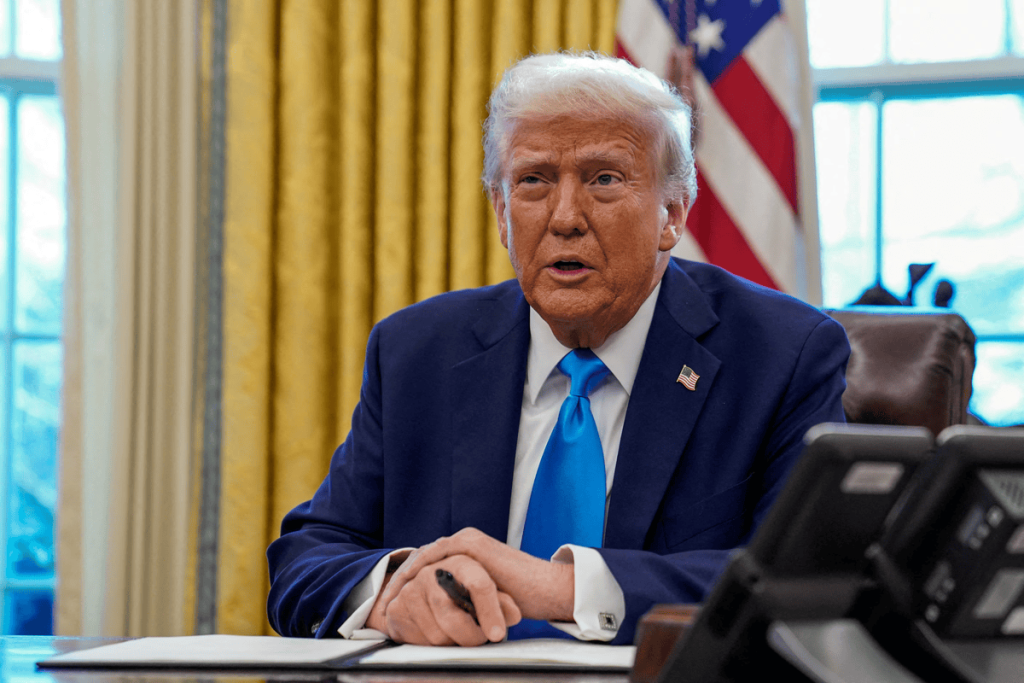The Senate has confirmed Russell Vought as the White House budget director—a move that solidifies his role in shaping the administration’s ambitious conservative blueprint known as Project 2025. Vought, a key architect of the project and a veteran of President Donald Trump’s first term, was confirmed on a party-line vote of 53-47, despite fierce opposition from Democrats. This confirmation has intensified scrutiny of what is Project 2025 and its potential to reshape the federal government.
What Is Project 2025?
So, what is Project 2025? In simple terms, Project 2025 is a comprehensive, 900-page policy manifesto designed to overhaul the executive branch. Crafted by the Heritage Foundation along with numerous conservative think tanks and former Trump advisers, the document outlines radical proposals aimed at transforming how the federal government operates. The project includes a wide-ranging agenda that emphasizes shrinking the administrative state, reducing federal spending, and promoting traditional social values.

What Is in Project 2025? The Policy List
For those asking what is in Project 2025, the answer lies in its extensive Project 2025 list of proposals. Key elements include:
- Reorganization of Federal Agencies: The project advocates placing the entire federal bureaucracy under direct presidential control. This could involve eliminating or significantly restructuring agencies such as the Department of Education and Homeland Security.
- Budget Cuts and Spending Freezes: Vought and other proponents call for deep cuts to discretionary spending, including a freeze on federal budgets—a move intended to curb government excesses.
- Replacement of Career Civil Servants: The agenda suggests eliminating job protections for thousands of federal employees, allowing for a swift replacement with political appointees aligned with the administration’s goals.
- Promotion of Christian Nationalism: One of the more controversial aspects involves infusing government policy with Christian values, reflecting the belief that the United States was founded as a Christian nation.
- Social Policy Reforms: The document outlines measures aimed at redefining family structures, restricting abortion (including proposals to remove mifepristone from the market), and curbing what it deems as “woke” ideologies in education and corporate America.
- Economic and Regulatory Overhaul: Project 2025 proposes sweeping reforms of regulatory bodies, such as the SEC and FCC, alongside bold ideas like slashing taxes and reconsidering the Federal Reserve’s role.
These proposals paint a picture of a radical shift in governance—a blueprint that, if implemented, would dramatically alter the balance of power within the executive branch.
What Does Project 2025 Say About the Future?
When critics ask what does Project 2025 say about the future of the federal government, the answer is clear: it envisions an America where executive power is dramatically expanded, and traditional conservative values are deeply embedded in government policy. Proponents argue that this approach will streamline decision-making and reduce what they see as bureaucratic inefficiencies. According to Russell Vought, President Donald Trump’s cabinet pick for Office of Management and Budget is “the best, most comprehensive approximation of the President’s mind,” meaning that every decision made will be a direct reflection of the administration’s vision.
However, Democrats and other opponents warn that such sweeping changes could undermine essential checks and balances, potentially placing too much power in the hands of the executive. They argue that dismantling long-standing institutions and replacing career experts with political appointees risks destabilizing the very structures that ensure accountability in government.
Controversy Surrounding Project 2025
Project 2025 has become a lightning rod for debate. Critics have formed task forces, launched tip lines, and repeatedly warned that the proposals contained in the project are “extreme” and “dangerous.” Despite public denials by President Trump—who has claimed to have “nothing to do with Project 2025”—numerous key figures in his administration have clear ties to its authors. Russell Vought, for example, not only co-authored a key chapter of the document but also spearheaded its playbook for the early days of Trump’s previous term.

Other appointees with connections to the project include figures like Peter Navarro, Paul Atkins, and Brendan Carr. Their involvement has led to widespread concerns about the potential for a radical reorganization of federal power and policy, one that could fundamentally alter the landscape of American governance.
The confirmation of Russell Vought as White House budget director marks a critical juncture for Project 2025. With a comprehensive list of radical proposals on the table, the coming months promise to be a battleground for debates over the direction of federal policy, the limits of presidential power, and the enduring struggle over the nation’s ideological future.


